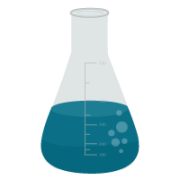DK / EN
The Vissing Foundation supports
Near-patient research in disease prevention, diagnostics and treatment, mainly related to cancer and diabetes.
The Vissing Foundation supports
The Vissing Foundation supports sustainable energy for everyone. Applications can be submitted on this site and through Venture Cup for support for knowledge-based start-up companies.
The Vissing Foundation supports
Projects and activities that support marginalised children and young people.

The Foundation supports near-patient research in disease prevention, diagnostics and treatment, mainly related to cancer and diabetes.

The Foundation supports research in sustainable energy.

The Foundation supports projects and activities that support marginalised children and young people.
Applicants whom the Vissing Foundation supports will be contacted by email approx two months after the application deadline. If you do not hear anything within that period, your project has not received support. Read more
The application deadlines are
28 February, 31 May, 31 August
and 30 November.